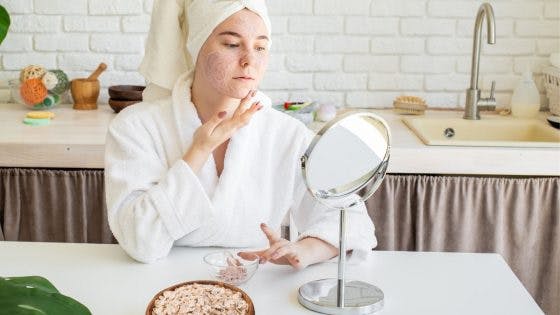Oats: This Ancient Ingredient Could Be The Secret To Great Skin
5 minutes read
Most skincare ingredients sound like they have been concocted in a lab, but colloidal oatmeal? It sounds more like something you’d find in your grandparents’ pantry… but don’t let the name fool you; this incredible ingredient has been used for centuries to soothe dry, irritated, and itchy skin. In this article, get to know this natural ingredient, its benefits, and how to make your own at home.
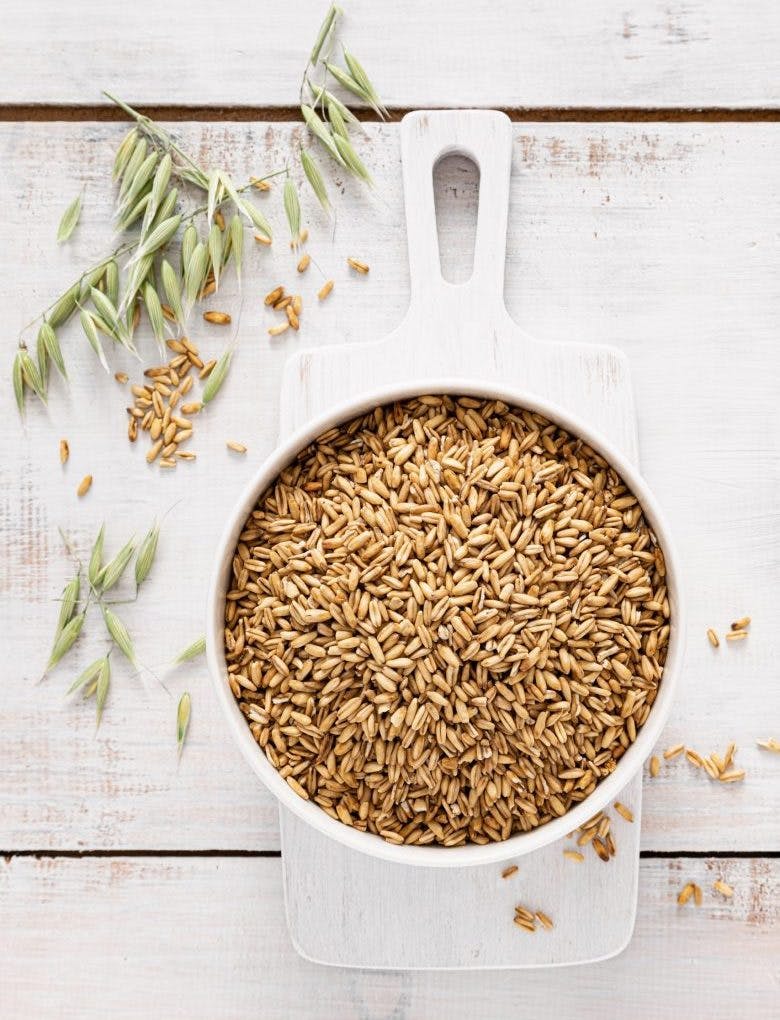
What is colloidal oatmeal?
Colloidal oatmeal is essentially whole, uncooked oats that have been ground into a fine powder. Sounds simple right? Well, it is! But sometimes, the simplest natural ingredients pack the most potent punch. For example, colloidal oatmeal contains nutrients like vitamins, minerals, proteins, and fats that soften and soothe the skin. As a result, you’ll find it in many cosmetic products, like shaving creams, shampoos, and moisturisers, thanks to its natural emollient properties.
Colloidal oatmeal vs oatmeal
Before you go running to the cupboard for your breakfast oatmeal, here are the critical differences between colloidal oatmeal and regular oatmeal:
- Colloidal oatmeal is made from whole oats containing bran, germ, and endosperm. It mixes well with water when ground up finely, making a homogenous mixture full of nutrients, which works so well in a bath.
- Regular oatmeal usually only contains the oat groat, making it easier to cook. You can use it in a bath (it still releases some nutrients), but it won’t mix well, and some of the larger flakes will rise to the surface.
Benefits of colloidal oatmeal
Eczema
Eczema (dermatitis) covers a range of medical conditions caused by stress, allergies, and irritants that can leave your skin feeling dry, scaly, itchy, and patchy. Due to its emollient properties, colloidal oatmeal features in many moisturisers and is sometimes suggested as a treatment for eczema.
Research from the Clinical, Cosmetic and Investigational Dermatology Journal found that colloidal oatmealhelped improve hand eczema in patients by supporting the skin barrier, moisturising the skin, and providing anti-inflammatory properties.
Psoriasis
Psoriasis is a chronic autoimmune skin condition that causes the body to regenerate skin faster than usual, resulting in itchy, red, scaly patches of skin. You’ll usually find it on the scalp, knees, and elbows. It’s easy to mistake it for eczema, even though the two are caused by entirely different things. Colloidal oatmeal creamsand treatments can soothe and hydrate patches of psoriasis, helping to reduce swelling and itching.
General benefits for everyone
Sensitive skin or not, colloidal oatmeal benefits every type of skin. Development chemist and skincare expert from Skin + Me, Faye Purcell, says that oats contain properties that can help strengthen the skin barrier:
“The beta-glucan and starches in oats attract water to the skin and form a protective barrier to help soothe, nourish, and rejuvenate.”
When your skin barrier is weak and not working properly, it can leave you vulnerable to rough, scaly, dry, and discoloured patches.
Colloidal oatmeal also contains many antioxidants and anti-inflammatory properties that can help protect your body from free radicals (particles that can cause oxidative stress and damage your body).
Read Next: How To Tell If You Have A Damaged Skin Barrier And Ways To Fix It
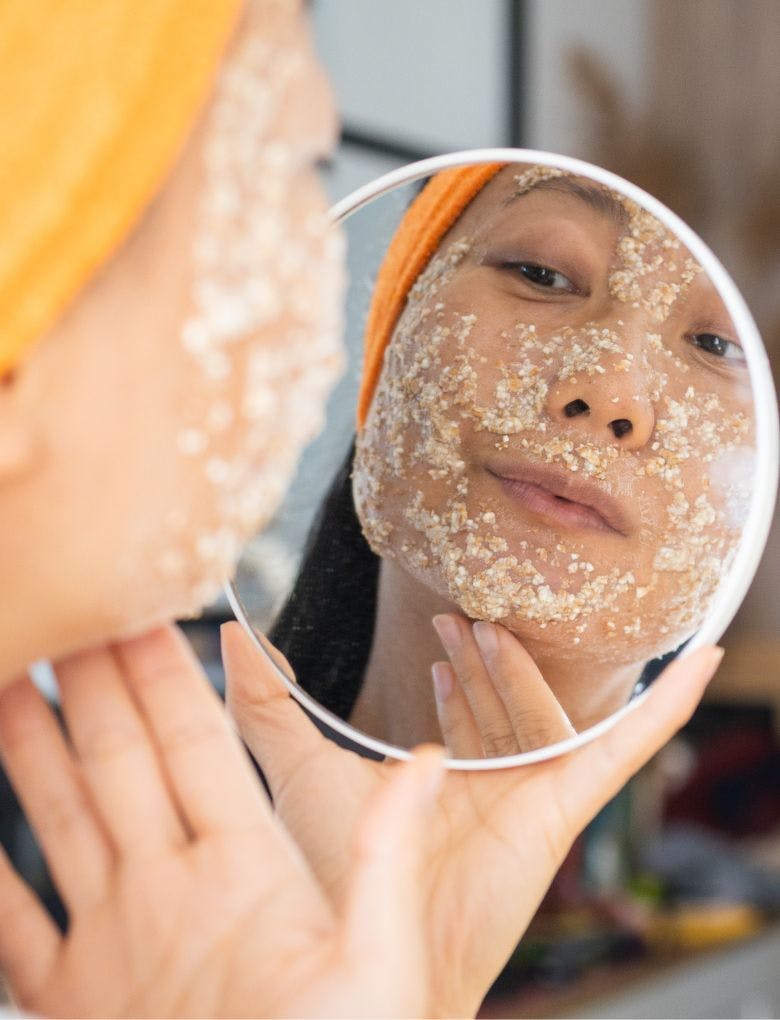
Colloidal oatmeal cream
When shopping for oat-enriched creams, you commonly come across two ingredients: colloidal oatmeal and Avena Sativa extract. Avena Sativa is the official name for the common oat, and its extract is made from the stems and leaves of the plant rather than the bran (like colloidal oatmeal). According to dermatologist Dr Tess Mauricio, both ingredients can do wonders for your skin:
AproDerm Colloidal Oat Cream, £10
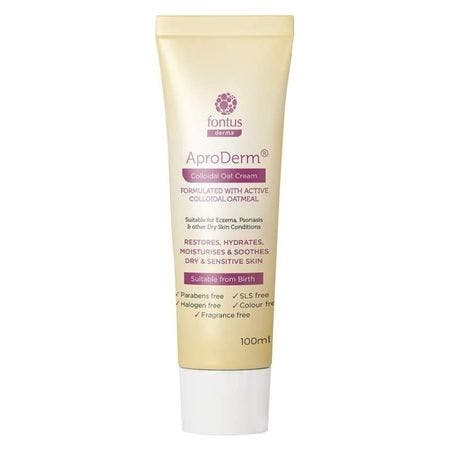
This hydrating colloidal oatmeal cream by AproDerm is paraffin-free and can help soothe, moisturise and protect dry skin.
Clarins Extra-Firming Day Cream, £63
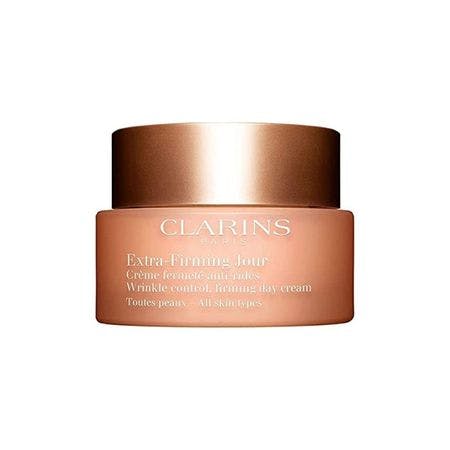
Control wrinkles and protect your face from UV rays with the help of Avena Sativa extract in this extra-firming day cream.
Eucerin Eczema Relief Body Cream, £19.99
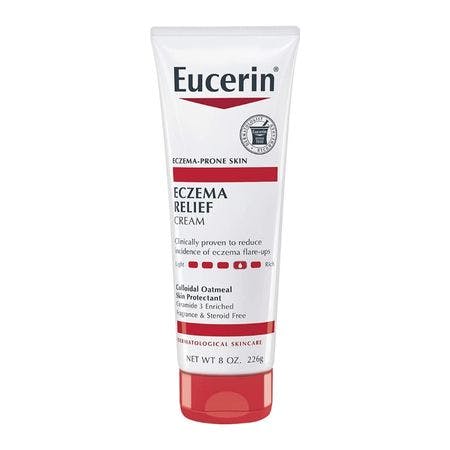
If you have dry, eczema-prone skin, this body cream enriched with colloidal oatmeal can help keep it hydrated 24/7, helping to soothe irritation and dryness.
Clarins Moisture-Rich Body Lotion, £36
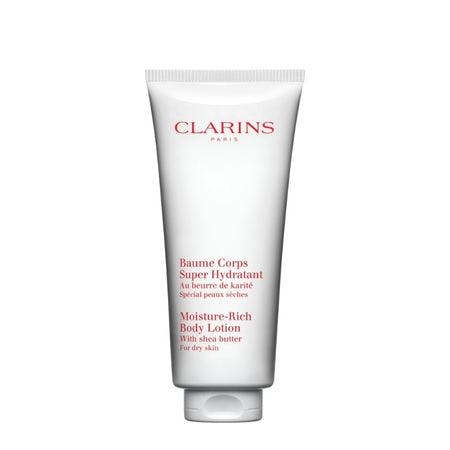
Avena Sativa extract features pals up with shea butter and other organic plant extracts to nourish and hydrate even the driest of skin.
Can I make my own colloidal oatmeal?
Fancy making your colloidal oatmeal? It’s super cheap and easy to whip up at home. Here’s how to do it in 3 simple steps:
How to make colloidal oatmeal
1. Blend
Get some raw, whole oatmeal and place it in a coffee grinder, blender, or food processor.
2. Pulse
Pulse the oats until they reach a fine consistency – almost like powdered icing sugar.
3. Test
Test if the powder has been ground finely enough to become homogenous (able to mix thoroughly) with liquids like creams and bath water. Add around 1 tbsp of the powder into a pint of water, and if it turns milky white, it is good to go. If not, grind the powder up a little more until it does.
How to make a colloidal oatmeal bath
What is a colloidal oatmeal bath, we hear you ask. It turns out that adding colloidal oatmeal to a warm bath (not hot, as this can make dry skin even drier) can help calm skin inflammation and irritation and have a moisturising effect. Here’s how to do it:
- After you’ve run a warm bath, sprinkle around 250g of powder into the warm water and let it soak for about 15 minutes
- Then, slide on in and reap the benefits, making sure to moisturise after
If you prefer making your own, you can also find pre-made oatmeal bath products like this Ameliorate Bath Milk Oil, £20.
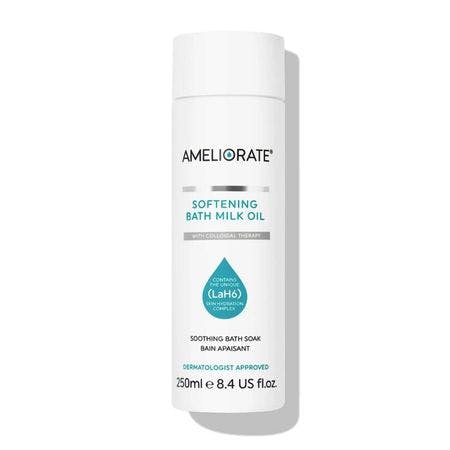
Read Next: The Art Of Bathing: Cold Plunges, Hot Baths & Everything In-Between
FAQs
Can you eat colloidal oatmeal?
It depends. If you have made your own colloidal oatmeal using just oats, then it is essentially oat flour, so go for it! However, most colloidal oatmeal products like creams and hair products will contain other inedible ingredients, so watch out.
Does colloidal oatmeal contain gluten?
Oats do not contain gluten, but they may have been contaminated with other cereals that contain gluten while they were being processed and packaged. Always check the label if you have celiac disease or gluten sensitivity, as you may react to colloidal oatmeal products, although this is rare.
Can you add colloidal oatmeal to body butter?
Yes! You can add colloidal oatmeal to body butters, lotions, and creams. However, we recommend taking a small amount and testing it first to check that it mixes well.
Read Next: Dry Skin Cream That Dermatologists Recommend
Sign up for our newsletter
We will keep you in the loop for special offers, exclusive gifts and product news.

